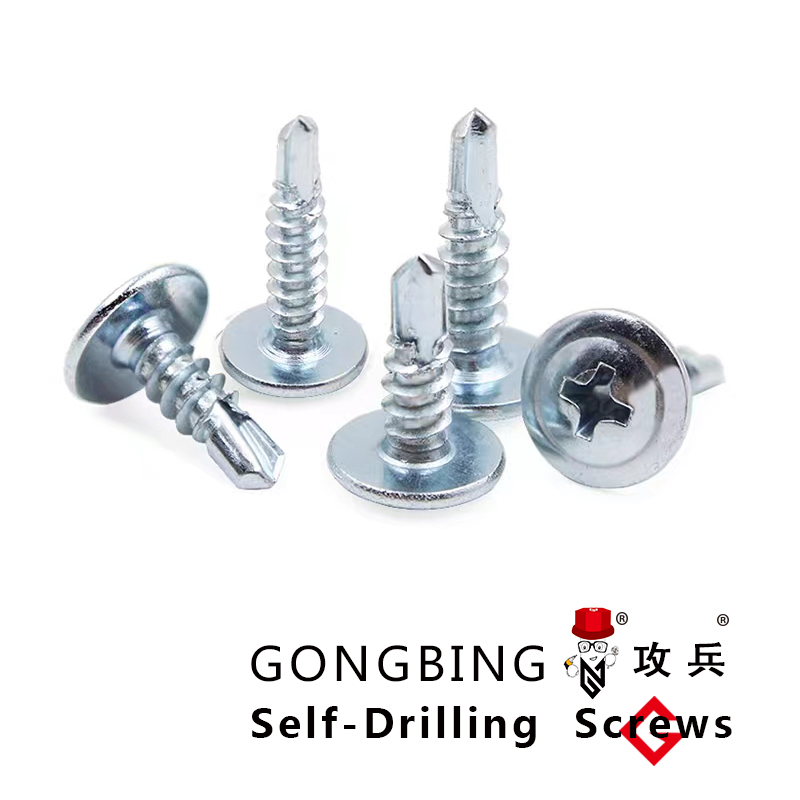Understanding the Benefits and Applications of Washer Head Bolts in Various Industries
Understanding the Washer Head Bolt
When it comes to fastening technology, the washer head bolt is an essential component that engineers, builders, and DIY enthusiasts often utilize. This specialized type of bolt combines the functionality of a traditional bolt with an integrated washer, thus creating a more efficient fastening solution. In this article, we will delve into the characteristics, advantages, and applications of washer head bolts, providing an overview of why they are indispensable in various industries.
Structure and Design
A washer head bolt is characterized by its unique head design, which features an integrated washer that is either part of the head itself or closely machined into the head profile. This design allows the bolt to distribute the load over a larger surface area, thereby minimizing the risk of damage to the material being clamped. The washer head is typically flat, offering a wide bearing surface that provides stability and prevents the bolt from pulling through softer substrates.
Advantages of Washer Head Bolts
1. Load Distribution One of the primary benefits of washer head bolts is their ability to evenly distribute the load. This feature is crucial in applications where fastening to softer materials, such as wood or thin metals, is necessary. The larger surface area minimizes stress concentrations, reducing the likelihood of deformation or failure.
2. Reduced Surface Damage The integrated washer design helps to protect the surface of the materials being joined. In traditional fastening methods, regular bolts can cause gouging or denting in softer materials, but washer head bolts offer a gentler touch.
washer head bolt

3. Ease of Installation Those who work with washer head bolts often find them easier to install. The wider head offers more gripping surface, making it simpler to apply the appropriate torque without slippage. This is especially beneficial in environments where precision and control are mandatory.
4. Versatility Washer head bolts come in various sizes, materials, and finishes, making them suitable for a wide range of applications. Whether in automotive assembly, construction, or machinery manufacturing, there is likely a washer head bolt designed to meet the specific needs of the project.
5. Corrosion Resistance Many washer head bolts are made from materials that are resistant to corrosion, such as stainless steel or coated metals. This makes them ideal for outdoor use or environments where exposure to moisture and chemicals is a concern.
Applications
Washer head bolts are used in numerous applications across different fields. In the construction industry, they are commonly employed for structural connections where load distribution is critical. In automotive manufacturing, these bolts ensure that components remain securely fastened while reducing the risk of damage to the chassis and other parts. Additionally, in the field of electronics, washer head bolts can be found fastening cases, where aesthetics and functionality must be balanced.
Conclusion
In summary, washer head bolts offer a unique combination of benefits that make them a preferred choice for many fastening applications. Their ability to distribute load, reduce surface damage, and provide ease of installation makes them indispensable in a variety of industries. Whether you are a professional engineer or a weekend warrior tackling home improvement projects, understanding and utilizing washer head bolts can lead to stronger, more reliable fastenings. As industries continue to evolve and demand higher standards of safety and performance, the washer head bolt will undoubtedly remain a critical component of fastening technology.
-
Weatherproof Plastic Expansion Anchors for OutdoorখবরJun.06,2025
-
Sustainability in the Supply Chain: Eco-Friendly TEK Screws ProductionখবরJun.06,2025
-
Load-Bearing Capacity of External Insulation FixingsখবরJun.06,2025
-
Double Head Bolts: Enhancing Efficiency in Industrial MachineryখবরJun.06,2025
-
Corrosion Resistance in Chipboard Screws: Coatings for Wholesale DurabilityখবরJun.06,2025
-
Butterfly Toggle Bolts : Enhancing Structural ResilienceখবরJun.06,2025
